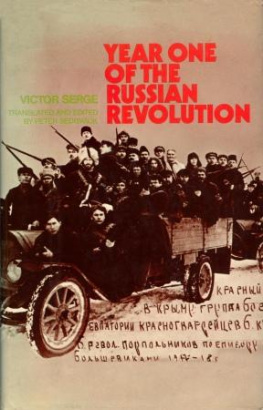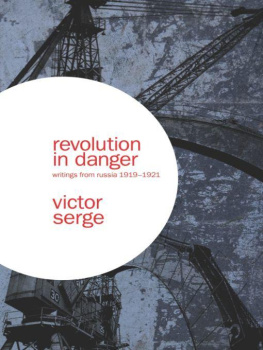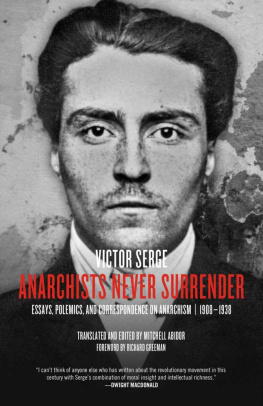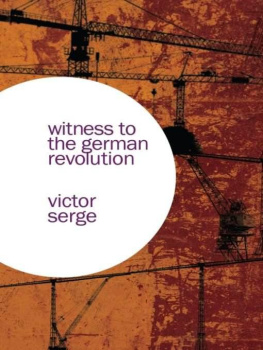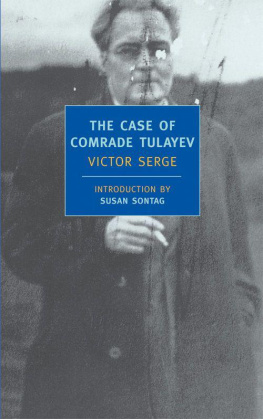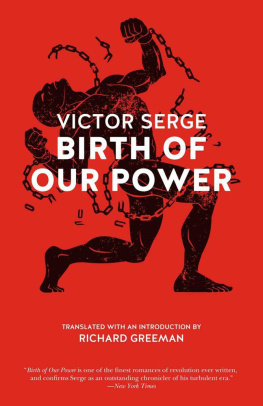
PRAISE FOR A BLAZE IN A DESERT
The voice of Victor Serge is needed now more than ever, and James Brook provides a fine edition and translation of his poems, bringing out the close relation between poetic expression and sensibility, and humane, revolutionary political engagement. History and the cosmos, individual and collective hopes, dreams and loss trace a subtle dance in this moving collection.
Bill Marshall, author of Victor Serge: The Uses of Dissent and Guy Hocquenghem: Beyond Gay Identity
In these dark times, the poetry of Victor Serge illuminates the deep continuum of revolutionary history. As all great work, it shows the power of both resistance & acceptance. Serge is noted for his prose but his poetry is in many ways more moving. It inspires the reader to stay true to the revolutionary spirit and will in its compassion, defiance, and outrage.
David Meltzer, author of San Francisco Beat: Talking with the Poets, When I Was a Poet, and Two-Way Mirror: A Poetry Notebook
In this meticulously translated collection of Victor Serges poetry, emotion is the force that swells beneath the poets acute observations and his reasoning, sobriety, and restraint.
Summer Brenner, author of Nearly Nowhere and My Life in Clothes
An international rebel with a cause, ever the champion of the downpressed and foreclosed, and of all the broken young wings, Victor Sergedeported, exiled, hounded from country to country and continent to continentinhabited a planet without visas. But in A Blaze in a Desert Serges poetry, which witnessed the rise of modern totalitarian political ideologies and ideologues, comes home to Walt Whitmans band of brothers. And James Brooks erudite introduction guides us well through Serges engagement with poetry and poets and the enduring struggle for justice.
Gloria Frym, author of Mind over Matter and The True Patriot

A Blaze in a Desert: Selected Poems by Victor Serge
Translation and edition copyright 2017 by James Brook
Afterword copyright 2017 by Richard Greeman
This translation is based on Victor Serge, Pour un brasier dans un dsert, Jean Rire, ed., published in France in 1998. The new translations of Rsistance and Mains in A Blaze in a Desert supersede the translations in the 1989 City Lights edition of those poems.
All rights reserved. No part of this book may be transmitted by any means without permission in writing from the publisher.
ISBN: 9781629633824
Library of Congress Control Number: 2016959587
Cover drawing copyright 1978 by Vlady
Cover design by John Yates / www.stealworks.com
Interior design by briandesign
10 9 8 7 6 5 4 3 2 1
PM Press
PO Box 23912
Oakland, CA 94623
www.pmpress.org
Printed in the USA by the Employee Owners of Thomson-Shore in Dexter, Michigan.
www.thomsonshore.com
Contents
Preface
Many years ago, friends pressed me to read Victor Serges writings, especially Memoirs of a Revolutionary and the novels. These books turned out to be among a handful that preserved and helped recreate the human texture of an era of revolt, revolution, and darkly tragic counterrevolution that still weighs on the present. The writing was vivid, stirring, tense, moderna source of divided pleasures in our night with its stars askew.
I came to the poetry much later, stumbling across Franois Maspros 1972 reprint of Rsistance (retitled Pour un brasier dans un dsert) in a bookshop in Paris one day. The poems, many of them written during the immense shipwreck of Stalins ascendancy, struck me as strange, oblique, and often beautiful: they were charged with anger, hope, disappointment, irony, and passion, and they quickly shifted from clear-eyed realism to lyricism to the crack-up of the real, and back again.
A Blaze in a Desert includes translations of Rsistance (1938), Serges sole published book of poems, and of Messages (1946), a manuscript left unpublished until 1998. In addition, it contains a translation of Serges last poem, Mains (Hands) (1947), also left in manuscript. Throughout, I have relied on Jean Rires superb edition of the poems: Victor Serge, Pour un brasier dans un dsert (1998); his annotated edition also includes uncollected and unpublished poems and drafts of poems.
I owe a debt of gratitude to Mitchell Abidor, Claudio Albertani, Lori Fagerholm, and Georgia Smith for their encouragement and help over the years that this project took. Special thanks are due to Christopher Winks, Donald Nicholson-Smith, Rene Morel, Richard Greeman, and Summer Brenner for their crucial readings and comments when such were most needed. Richard Greeman, the translator of most of Serges novels, also contributed the afterword. El Centro Vlady, at the Universidad Nacional Autnoma de Mxico (UNAM), graciously authorized the reproduction of the sketch that Vladimir Kibalchich Russakov (Vlady) made of his fathers hands in death.
Lori, this book is for you.
James Brook
November 2016
Mourning the Fallen, Mourning the Revolution
James Brook
All my life I have seen only troubled times, extreme divisions in society, and immense destruction; I have taken part in these troubles.
Guy Debord, Panegyric, vol. 1
Victor Serge (18901947) is best known for Memoirs of a Revolutionary and a series of novels based on his experience of prison in France, a failed insurrection in Spain, the early hopes and abysmal failure of the Russian Revolution, the fall of France to the invading German army, and the epic chaos of the Second World War.1 But from his anarchist youth in Belgium and France till his dying day in Mexico after the Second World War, Serge was also very much a poet. Elegiac, satiric, sometimes lyrical, his poetry speaks of experiences almost incomprehensible to us, because we are so distant from Serges world and our sense of history is often so weak. As he asks in his wartime notebooks, What remains of the worlds Ive known, in which Ive struggled?2 As with his memoirs, one of the tasks of Serges poetry is to preserve and transmit the memory of those densely populated worlds.
Serge wrote much of his poetry in exile. As a prisoner of Stalin, Serge spent the years 19331936 in internal deportation in Orenburg, near the Russian border with Kazakhstan, where he wrote most of the poems published in Resistance (1938). Later, in his flight from the Nazi invasion of France, Serge found refuge in Mexico, where he lived from 1941 until his death in 1947. He began writing the poems collected in Messages (1946) in Paris and Marseille, with others datelined Martinique, Ciudad Trujillo, the Atlantic, and Mexico.3
For Serge, exile meant more than geographical displacement. As a core member of the Left Opposition to Stalin from the late 1920s on, Serge lived amid intense ideological conflicts that often put his life in jeopardy. From his early days as an anarchist in Belgium and France, through his participation in the Russian Revolution, and till the end of the Second World War, Serge lived the great hopes and the bitter disappointments of social revolution in the first half of the twentieth century. He witnessed the rise of first Stalinist, then Nazi totalitarianism, and he saw the world utterly transformed by a war in ways that he struggled to comprehend, all of which left their imprint on his poetry, as in Marseille (1941):
Next page


